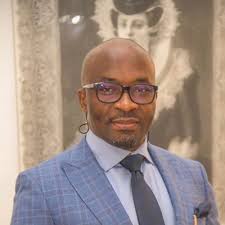society
Appraising Ben Kalu’s Relentless Efforts at the Pan-African Parliament By Philip Agbese

Appraising Ben Kalu’s Relentless Efforts at the Pan-African Parliament
By Philip Agbese
In Africa’s modern political landscape, Rt. Hon. Benjamin Okezie Kalu stands out as a leader who exemplifies visionary leadership and diplomatic tact. As Deputy Speaker of Nigeria’s House of Representatives and head of Nigeria’s delegation to the Pan-African Parliament (PAP), his tenure has been marked by a relentless drive to strengthen cooperation among African nations, propel the PAP’s objectives, and foster the emergence of a new generation of African leaders.
Through his work, Ben Kalu has embodied the core values of African unity, cooperation, and progress while also positioning the PAP as a vehicle for true continental integration. The Pan-African Parliament, established in 2004 as one of the African Union’s nine organs, serves as a symbolic and practical forum for unifying Africa’s disparate nations around common goals.
Based in Midrand, South Africa, the PAP provides a platform for debate, decision-making, and policy formulation aimed at addressing the continent’s socio-economic challenges. Initially established with an advisory mandate, the institution seeks full legislative powers to promote human rights, democracy, and good governance. The PAP’s vision is profound: empowering Africans, including grassroots organisations, to participate in shaping Africa’s future and addressing its most pressing problems.
While some argue that Ben Kalu isn’t the sole deputy speaker the Southeast region has produced, his exceptional track record unequivocally positions him as the most results-driven and impactful Nigerian leader since the inception of the Fourth Republic, which began in 1999. This marks a significant shift for Nigeria, transitioning from military rule to democratic governance.
Ben Kalu’s leadership stands out, demonstrating a unique blend of vision, expertise, and dedication. His outstanding performance and significant contributions have undoubtedly set him apart from his predecessors. By leveraging his expertise and diplomatic prowess, Kalu has consistently advanced the interests of the Southeast region and Nigeria as a whole.
It is against this backdrop that Kalu’s contributions become particularly remarkable. His diplomatic skills, intellectual prowess, and firm commitment to PAP’s goals have helped bridge divides between member states, enabling greater knowledge-sharing and policy alignment. Under his leadership, PAP has seen increased collaboration among its members, vital in an era where Africa must present a united front to tackle global challenges such as economic inequality, political instability, and climate change.
Kalu’s tenure as the leader of the Nigerian delegation has witnessed a palpable enhancement in diplomatic collaboration within the PAP. One of the most critical roles of PAP is to act as a forum for discussions on common problems, and here, Kalu’s leadership has been pivotal. His ability to foster meaningful dialogue among member states is not merely a reflection of his position but evidence of his diplomatic skill and deep understanding of the Pan-African cause.
Kalu has made it a priority to emphasise the importance of African unity. By encouraging member states to share experiences, particularly in areas such as governance, human rights, and economic development, he has helped create a culture of openness and shared learning within the institution.
Moreover, Kalu’s diplomatic finesse has proven instrumental in fostering peace and security within the continent. The West African sub-region, in particular, has faced persistent challenges related to political instability, terrorism, and economic disparity. In this context, Kalu’s efforts to galvanise cooperation among West African PAP members have been critical.
His interventions, emphasising collaboration over confrontation, have brought renewed hope to the region. Beyond diplomacy, Kalu’s leadership has also inspired a new generation of African leaders. In a continent where leadership often faces scrutiny due to governance issues and corruption, Kalu’s exemplary record stands out.
His firm commitment to transparency, accountability, and democracy offers a model for aspiring leaders, both within and outside Nigeria. Kalu’s journey to political prominence, marked by intellectual rigour and parliamentary acumen, sends a powerful message: African politics need not be dominated by populism or divisive rhetoric but by leaders capable of tackling complex policy issues with insight and integrity.
His achievements signal a promising shift toward enlightened and thoughtful African leadership, valuing collaboration, unity, and long-term developmental goals. This is not to say the road ahead for PAP and African leaders is devoid of challenges. However, Kalu’s leadership has proven that, through patient negotiation and shared purpose, African nations can come together to solve their problems.
His efforts have shown PAP’s potential to address the continent’s challenges and empower Africans from the grassroots up. One of PAP’s significant aspects is its ambition to evolve into a fully-fledged legislative body. Currently, PAP functions as an advisory organ, providing recommendations to the AU Assembly and Council of Ministers.
However, the vision for PAP is to one day exercise legislative powers over areas of common interest, including human rights, democracy, and good governance. Kalu’s contributions toward this goal cannot be overstated. As a parliamentarian with vast experience in Nigerian politics, he brings a wealth of knowledge on legislative processes. His efforts to advocate for PAP’s transition into a body with legislative powers have been persistent. By promoting discussions around this issue and galvanising support from other delegations, Kalu has helped keep the vision of a legislative PAP alive.
However, the path toward full legislative powers is fraught with challenges. Many member states are still wary of ceding legislative authority to a supranational body, fearing it might infringe on their sovereignty. Yet, Kalu’s approach has been one of balance; he recognises these concerns but believes a legislative PAP would enhance, rather than diminish, member states’ sovereignty by ensuring African problems are addressed through African solutions.
Moreover, the evolving nature of the global political landscape, characterised by increasing regionalism and multilateral cooperation, makes PAP’s legislative ambitions even more relevant. In a world where economic blocs like the European Union have shown the power of supranational institutions in driving development, PAP has the potential to become Africa’s legislative powerhouse, promoting harmonised policies that tackle the continent’s most pressing issues.
Perhaps the most fitting description of Rt. Hon. Ben Kalu is “a true champion of African unity and progress.” His commitment to the Pan-African ideal is not just rhetorical but deeply practical and exudes non-political affiliation. He understands that Africa’s strength lies in its unity and that PAP is uniquely positioned to harness that strength.
Through his efforts, Kalu has emphasised the importance of cooperation, both within PAP and across the African Union’s organs. His intellectual prowess and astute parliamentary skills are invaluable assets to the West African bloc in PAP, as he continues to advocate for policies benefiting not only Nigeria but the entire region. In doing so, he has earned widespread admiration as a visionary leader capable of navigating the complex waters of African diplomacy.
Moreover, Kalu’s relentless advocacy for African development, intellectual agility, and deep-seated belief in Africa’s potential position him as a towering figure in African politics. It is no exaggeration to describe him as an intellectual juggernaut, a leader whose vision transcends immediate concerns to focus on Africa’s long-term prosperity.
In conclusion, Rt. Hon. Ben Kalu’s leadership at the Pan-African Parliament represents hope for the future of African politics. Through diplomatic skills, relentless advocacy for collaboration, and inspiring leadership, Kalu has advanced PAP’s goals and set a high standard for future African leaders. His work embodies the principles upon which the Pan-African Parliament was founded: unity, progress, and shared commitment to solving Africa’s challenges through dialogue and collective action.
As the Pan-African Parliament continues its transformative journey toward becoming a fully-fledged legislative body, Ben Kalu’s pivotal role will persist in shaping its trajectory. His exceptional ability to navigate Africa’s intricate and dynamic political landscape while inspiring a new generation of visionary leaders ensures his profound influence will resonate for generations.
In a continent marked by rich yet complex history, leaders like Kalu, who champion not only their nation’s interests but also the broader aspirations of the entire continent, are indispensable. Their visionary leadership and strong commitment to Africa’s progress will help harness the continent’s untapped potential.
With leaders like Kalu at the helm, Africa stands poised on the threshold of a new era of unprecedented growth and development. In essence, Ben Kalu’s legacy will continue to illuminate the path toward a brighter future for Africa. His impact on the continent’s political and economic landscape will undoubtedly endure, cementing his place as one of Africa’s most visionary and influential leaders.
This intervention was contributed by Agbese MHR, a member of the Pan-African Parliament writing from Agila, Benue State.
society
Ramadan: Adron Homes Felicitates Muslims, Preaches Hope and Unity

Ramadan: Adron Homes Felicitates Muslims, Preaches Hope and Unity
Adron Homes & Properties Limited has congratulated Muslim faithful on the commencement of the holy month of Ramadan, urging Nigerians to embrace the virtues of sacrifice, discipline, and compassion that define the season.
In a statement made available to journalists, the company described Ramadan as a period of deep reflection, spiritual renewal, and strengthened devotion to faith and humanity.
According to the management, the holy month represents values that align with the organisation’s commitment to integrity, resilience, and community development.
“Ramadan is a time that teaches patience, generosity, and selflessness. As our Muslim customers and partners begin the fast, we pray that their sacrifices are accepted and that the season brings peace, joy, and renewed hope to their homes and the nation at large,” the statement read.
The firm reaffirmed its dedication to providing affordable and accessible housing solutions to Nigerians, noting that building homes goes beyond structures to creating environments where families can thrive.
Adron Homes further urged citizens to use the period to pray for national unity, economic stability, and sustainable growth.
It wished all Muslim faithful a spiritually fulfilling Ramadan.
Ramadan Mubarak.
society
Underfunding National Security: Envelope Budgeting Fails Nigeria’s Defence By George Omagbemi Sylvester

Underfunding National Security: Envelope Budgeting Fails Nigeria’s Defence
By George Omagbemi Sylvester | Published by saharaweeklyng.com
“Fiscal Rigidity in a Time of Crisis: Lawmakers Say Fixed Budget Ceilings Are Crippling Nigeria’s Fight Against Insurgency, Banditry, and Organized Crime.”
Nigeria’s legislature has issued a stark warning: the envelope budgeting system; a fiscal model that caps spending for ministries, departments, and agencies (MDAs) is inadequate to meet the country’s escalating security challenges. Lawmakers and budget analysts argue that rigid fiscal ceilings are undermining the nation’s ability to confront insurgency, banditry, kidnapping, separatist violence, oil theft and maritime insecurity.
The warning emerged during the 2026 budget defence session for the Office of the National Security Adviser (ONSA) at the National Assembly in Abuja. Senator Yahaya Abdullahi (APC‑Kebbi North), chairman of the Senate Committee on National Security and Intelligence, decried the envelope system, noting that security agencies “have been subject to the vagaries of the envelope system rather than to genuine needs and requirements.” The committee highlighted non-release or partial release of capital funds from previous budgets, which has hindered procurement, intelligence and operational capacity.
Nigeria faces a multi‑front security crisis: persistent insurgency in the North‑East, banditry and kidnappings across the North‑West and North‑Central, separatist tensions in the South‑East, and piracy affecting Niger Delta oil production. Despite declarations of a national security emergency by President Bola Tinubu, lawmakers point to a “disconnect” between rhetoric and the actual fiscal support for agencies tasked with enforcement.
Experts warn that security operations demand flexibility and rapid resource allocation. Dr. Amina Bello, a public finance specialist, said: “A static budget in a dynamic threat environment is like sending firefighters with water jugs to a forest fire. You need flexibility, not fixed ceilings, to adapt to unforeseen developments.”
The Permanent Secretary of Special Services at ONSA, Mohammed Sanusi, detailed operational consequences: irregular overhead releases, unfulfilled capital appropriations, and constrained foreign service funds. These fiscal constraints have weakened intelligence and covert units, hampering surveillance, cyber‑security, counter‑terrorism and intelligence sharing.
Delayed capital releases have stalled critical projects, including infrastructure upgrades and surveillance systems. Professor Kolawole Adeyemi, a governance expert, emphasized that “budgeting for security must allow for rapid reallocation in response to threats that move faster than political cycles. Envelope budgeting lacks this essential flexibility.”
While the National Assembly advocates fiscal discipline, lawmakers stress that security funding requires strategic responsiveness. Speaker Abbas Ibrahim underscored that security deserves “prominent and sustained attention” in the 2026 budget, balancing oversight with operational needs.
In response, the Senate committee plans to pursue reforms, including collaboration with the executive to restructure funding, explore supplementary budgets and ensure predictable and sufficient resources for security agencies. Experts warn that without reform, criminal networks will exploit these gaps, eroding public trust.
As one policy analyst summarized: “A nation declares a security emergency; but if its budget does not follow with real resources and oversight, the emergency remains rhetorical.” Nigeria’s debate over envelope budgeting is more than an accounting dispute; it is a contest over the nation’s security priorities and its commitment to safeguarding citizens.
society
Rev. Mother Kehinde Osoba (Eritosin) Celebrates as She Marks Her Birthday

Rev. Mother Kehinde Osoba (Eritosin) Celebrates as She Marks Her Birthday
Today, the world and the body of Christ rise in celebration of a rare vessel of honour, Rev. Mother Kehinde Osoba, fondly known as Eritosin, as she marks her birthday.
Born a special child with a divine mark of grace, Rev. Mother Eritosin’s journey in God’s vineyard spans several decades of steadfast service, spiritual depth, and undeniable impact. Those who know her closely describe her as a prophetess with a heart of gold — a woman whose calling is not worn as a title, but lived daily through compassion, discipline, humility, and unwavering faith.
From her early days in ministry, she has touched lives across communities, offering spiritual guidance, prophetic insight, and motherly counsel. Many testify that through her prayers and teachings, they encountered God in a deeply personal and transformative way. Near and far, her influence continues to echo — not only within church walls, but in homes, families, and destinies reshaped through her mentorship.
A mother in every sense of the word, Rev. Mother Kehinde Osoba embodies nurture and correction in equal measure. As a grandmother, she remains energetic in purpose — accommodating the wayward, embracing the rejected, and holding firmly to the belief that no soul is beyond redemption. Her life’s mission has remained consistent: to lead many to Christ and guide them into the light of a new beginning.
Deeply rooted within the C&S Unification, she stands tall as a spiritual pillar in the Cherubim and Seraphim Church globally. Her dedication to holiness, unity, and prophetic service has earned her widespread respect as a spiritual matriarch whose voice carries both authority and humility.
As she celebrates another year today, tributes continue to pour in from spiritual sons and daughters, church leaders, and admirers who see in her a living reflection of grace in action.
Prayer for Rev. Mother Kehinde Osoba (Eritosin)
May the Almighty God, who called you from birth and anointed you for His service, continually strengthen you with divine health and renewed vigour.
May your oil never run dry, and may your prophetic mantle grow heavier with greater glory.
May the lives you have nurtured rise to call you blessed.
May your latter years be greater than the former, filled with peace, honour, and the visible rewards of your labour in God’s vineyard.
May heaven continually back your prayers, and may your light shine brighter across nations.
Happy Birthday to a true Mother in Israel — Rev. Mother Kehinde Osoba (Eritosin).
More years.
More anointing.
More impact.
If you want this adapted for a newspaper page, church bulletin, Facebook post, or birthday flyer, just tell me the format and tone.
-

 celebrity radar - gossips6 months ago
celebrity radar - gossips6 months agoWhy Babangida’s Hilltop Home Became Nigeria’s Political “Mecca”
-

 society6 months ago
society6 months agoPower is a Loan, Not a Possession: The Sacred Duty of Planting People
-

 society5 months ago
society5 months agoReligion: Africa’s Oldest Weapon of Enslavement and the Forgotten Truth
-

 news6 months ago
news6 months agoTHE APPOINTMENT OF WASIU AYINDE BY THE FEDERAL GOVERNMENT AS AN AMBASSADOR SOUNDS EMBARRASSING











